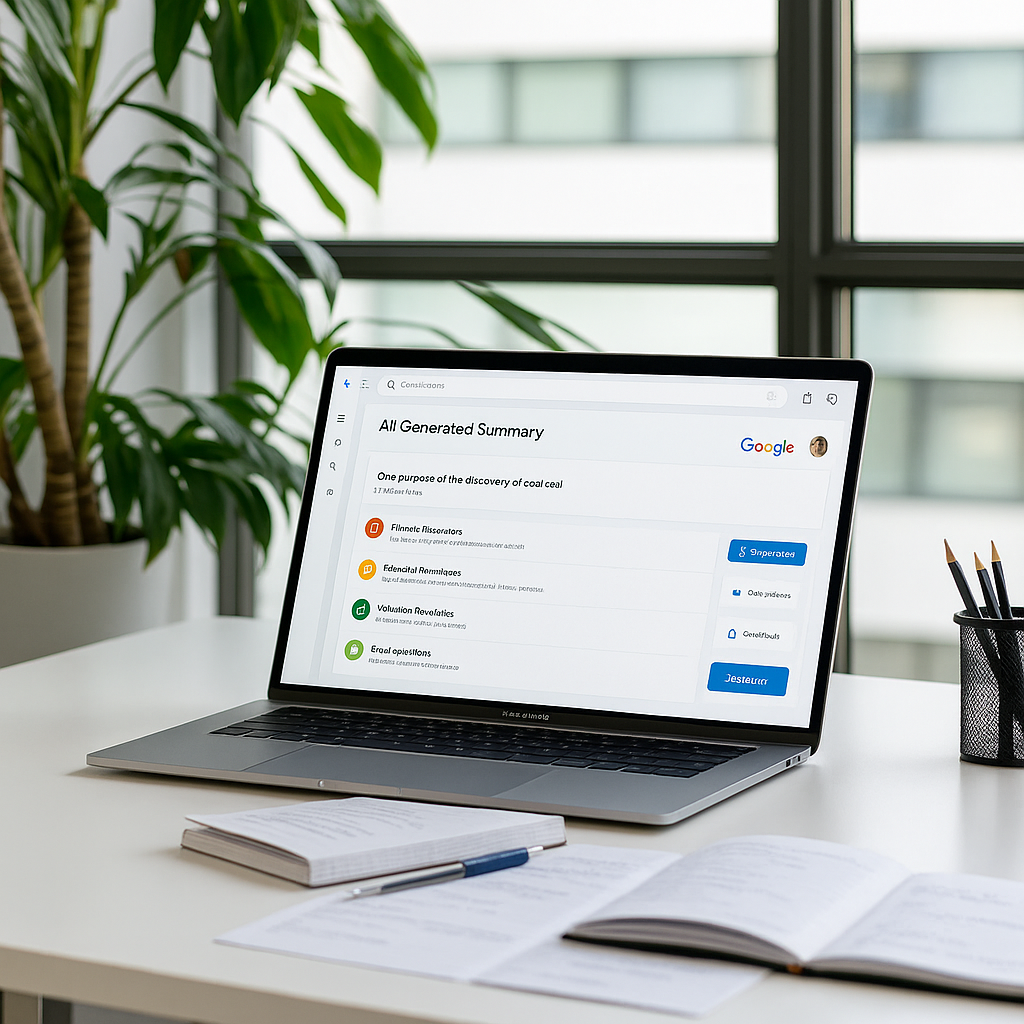Understanding Google AI Mode and the Importance of Indexing for AI-Generated Overviews
Google’s AI Mode introduces a new way of presenting search results by combining traditional listings with AI-generated summaries that provide concise, relevant insights. This feature depends on the indexing status of web pages, meaning only content properly indexed by Google can be included in these AI-driven overviews. This development highlights the need for webmasters and content creators to prioritize indexing as a foundational element of their SEO strategies.

AI Mode synthesizes information from multiple indexed sources to enhance user engagement. If a page is not indexed, it remains invisible to the AI’s summarization process, regardless of content quality or relevance. This adds complexity for SEO professionals, who must ensure pages are optimized not only for ranking factors but also for accessibility to AI algorithms. The impact extends beyond rankings, influencing how content is surfaced and consumed in search results, which calls for a clear understanding of indexing protocols within the evolving search landscape.
How Google AI Mode Relies on Indexing to Shape Search Experiences
Google AI Mode moves beyond traditional link listings by including AI-generated summaries drawn from multiple indexed pages. The feature depends on Google’s ability to access and analyze properly indexed content. Without indexing, a page cannot contribute to these synthesized overviews.
AI Mode scans various indexed pages, extracting relevant data to create concise snippets. Content must be structured and discoverable according to Google’s indexing protocols. Pages blocked by robots.txt, marked noindex, or otherwise hidden from the index will not appear in AI-generated summaries. This shifts content strategy to emphasize indexation alongside keyword optimization and backlink building.
For SEO professionals, this means complementing traditional ranking efforts with technical SEO practices that guarantee indexation. Being in Google’s index is no longer just a prerequisite for appearing in search results; it is essential for inclusion in AI-driven narratives. High-quality content risks invisibility if not properly indexed, underscoring the importance of regular audits and adherence to indexing best practices.
Maintaining indexable pages involves clear site architecture, avoiding unnecessary noindex tags, and proper use of canonical URLs. Metadata structure and page load performance also influence Google’s ability to crawl and index content efficiently. As AI Mode evolves, the relationship between indexing and AI-generated overviews will increasingly shape search visibility.
Indexing as the Gateway to Visibility in Google AI Mode
Indexing status determines which content AI Mode can include in its summaries. Without indexing, pages remain invisible to the AI, regardless of their value or relevance. This means SEO must balance traditional ranking factors with ensuring pages are accessible to Google’s crawlers and properly indexed. Indexing acts as a gatekeeper, filtering sources the AI can use for its synthesized answers.
However, being indexed does not guarantee inclusion in AI-generated snippets. Google requires pages to meet standard eligibility criteria for search snippets but imposes no additional technical requirements specific to AI Mode. Even when eligible, Google may choose not to crawl or serve certain content, introducing unpredictability for content creators.
This calls for renewed focus on technical SEO practices that support indexing: removing noindex directives, ensuring proper internal linking, and optimizing crawl efficiency. Since AI Mode relies on cached indexed data rather than live page requests, the freshness and accuracy of indexed content affect its contribution to AI summaries. Maintaining a clean, crawlable site is essential to consistently provide reliable information to the AI.
Balancing quality and technical accessibility is key to remaining part of the AI-generated narrative that shapes search experiences. While AI overviews may not always drive direct traffic, they influence how information is presented and perceived, making indexing foundational in the evolving search ecosystem.
Frequently Asked Questions About Google AI Mode and Indexing Requirements
Why is indexing crucial for content to appear in AI Mode?
If a page isn’t indexed by Google, it remains invisible to the AI’s summarization process. No matter how relevant or well-crafted, content must be crawled and stored in Google’s index to be included in AI-generated answers.
What technical steps ensure pages are eligible for AI Mode?
There are no unique requirements beyond standard indexing protocols. Pages blocked by noindex tags, robots.txt rules, or poor internal linking will not be accessible to crawlers, excluding them from AI summaries. Regular technical SEO audits help confirm all valuable content is discoverable and indexed.
Does being indexed guarantee inclusion in AI Mode summaries?
No. Google’s algorithms select indexed pages based on relevance, quality, and other ranking signals. Indexing is necessary but does not ensure visibility. High-quality, well-structured content combined with technical SEO best practices improves chances of inclusion.
How does indexing affect the freshness and accuracy of AI summaries?
AI Mode relies on cached indexed data rather than real-time page requests. Regularly updating content and prompting Google to re-crawl pages helps keep indexed information current, improving the quality and relevance of AI-driven results.
The Role of Indexing in Maximizing Google AI Mode Visibility
Proper indexing is essential for content to be considered in AI Mode’s summaries. High-quality content must be accessible to Google’s crawlers and free from technical barriers like noindex tags or blocked robots.txt files. While indexing alone does not guarantee inclusion, it serves as the gateway through which AI Mode selects and synthesizes information. Ongoing technical SEO efforts to maintain crawlability, freshness, and relevance are necessary to support this process. Prioritizing indexing helps content creators and SEO professionals adapt to the new dynamics of search visibility shaped by AI-generated insights.
Source: To show in Google AI Mode, AI overviews your page must be indexed – Search Engine Land
“If a page is not indexed, it remains invisible to the AI’s summarization process, regardless of content quality or relevance.” – Search Engine Land













.png)

